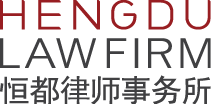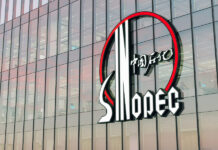The increasing number of prospective issuers with “three types of shareholders” (i.e., asset management plans, contractual funds and trust plans) that obtain initial public offering (IPO) approval from the China Securities Regulatory Commission (CSRC) has aroused investor interest. Is it a signal of less stringent regulatory review on IPO applications from prospective issuers?

Founding Partner
Hengdu Law Offices
Article 13 of the Measures for the Administration of IPO and Share Listing requires that “the issuer’s equity structure must be clear and there must be no major dispute over the ownership of shares held by the controlling shareholder, controlled shareholders, and shareholders controlled by the actual controller”. In practice, until very recently equity holding by “three types of shareholders” had posed a red line for IPO applicants given the fact that any shares held by these managers are being held on behalf of the beneficiary owners. That is why getting rid of “three types of shareholders” has been a rule for IPO applicants.
RECENT CASES
Central China Securities
In November 2016, the CSRC issued an IPO approval for Central China Securities (CCS). According to CCS’ prospectus, dated December 2016, a contractual fund known as Bohai Industrial Fund, the second-largest shareholder of CCS, directly held 18.86% equity in CCS. Bohai Industrial Fund was issued by Bohai Industrial Investment Fund Management (BIIFM), a fund manager that had been registered and filed, prior to implementation of the Interim Regulations on Private Investment Fund Supervision.
CCS’ prospectus disclosed that BIIFM was a limited liability company incorporated with approval from the National Development and Reform Commission (NDRC) and Ministry of Commerce (MOFCOM), and that Bohai Industrial Fund issued thereby was incepted contractually with NDRC approval. The applicant was not required to remove the contractual fund from its shareholder list.
However, some professionals argued that CCS was not a case in point, given two factors surrounding the inception of Bohai Industrial Fund: first, it was incepted prior to implementation of the interim measure; second, it was incepted with approval from the NDRC and MOFCOM.
Nanjing Hicin Pharmaceutical
The application of Nanjing Hicin Pharmaceutical that went through CSRC review almost at the same time as CCS drew more attention from investors. In December 2016, the CSRC issued an IPO approval of Nanjing Hicin Pharmaceutical. According to Hicin’s prospectus, dated December 2016, it had a shareholder named Jiangsu Gaotou Innovative Startups Investment Partnership, which ran asset management plans.
It was disclosed in the prospectus and other documents that China Merchants Wealth Asset Management, which issued four special management plans, held equity in Hicin indirectly by subscribing to partnership shares of Jiangsu Gaotou. Pursuant to the supplementary legal opinion, apart from a request for a statement on equity structure, the CSRC only asked whether China Merchants Wealth was affiliated with the prospective issuer and its controlling shareholder, actual controller, directors, supervisors, officers or any other crucial personnel, and whether there were transactions and fund transfers between China Merchants Wealth and the issuer, or its clients and suppliers. The CSRC did not require the issuer to remove asset management plans from its shareholder list.
It was pointed out by experts that the asset management plans involved in Hicin’s case were beneficially owned by only four natural persons, and Jiangsu Gaotou held only 3.25% equity in Hicin. However, Hicin obtaining CSRC approval as the first IPO applicant with “three types of shareholders” was believed to signify a meaningful change in the regulator’s attitude towards these shareholders. The CSRC revealed its attitude more clearly in a review procedure of the more recent IPO application from Hangzhou Changchuan Technology.

Associate
Hengdu Law Firm
Hangzhou Changchuan Technology
In March 2017, the CSRC issued an IPO approval for Hangzhou Changchuan Technology. According to Changchuan’s prospectus and other documents, it had a shareholder named Zhejiang Silicon Paradise Yingfeng Equity Investment Partnership, which fell within “three types of shareholders”; 97.28% of the capital contribution from Silicon Paradise was from contractual private equity funds. Pursuant to the supplementary legal opinion, the regulator: (1) asked whether any equity of the issuer had been or was currently held by trusts or any persons being entrusted, and whether the issuer had been or was currently involved in any transfer of benefits; (2) demanded a description of the complete equity structures of all non-natural person shareholders; and (3) asked whether the issuer had done anything to circumvent the provision that prohibits companies from having more than 200 shareholders. Eventually the CSRC did not require that none of the issuer’s shareholders belong to “three types of shareholders”.
REGULATORY OUTLOOK
In March 2017, the official WeChat account of Shanghai Stock Exchange, known as SSE IPO Services, published an article entitled What OTC companies should pay attention to in their IPO. It reminded that “in order to maintain clear and steady equity ownership during the IPO review procedure, a company with an IPO plan should be prudent in accepting shareholding vehicles such as trust plans, contractual funds and asset management plans as their shareholders, because there is always a possibility that the issuer’s equity structure might change due to expiry of the tenure of such vehicles”.
The authors find from the CCS, Hicin and Changchuan cases that “three types of shareholders” no longer poses a red line for IPO applicants. However, the success of prospective issuers with “three types of shareholders” in obtaining CSRC IPO approval does not necessarily mean that regulation in connection with these shareholders is loosened. Actually, the regulator does not intend to deregulate, according to the SSE article mentioned above.
The authors believe that an IPO applicant with “three types of shareholders” is likely to obtain CSRC approval provided that: (1) there are a limited number of ultimate equity holders; (2) there are no transfers of benefits or questionable related-party transactions; and (3) any shareholders that fall within the three types, together with their managers, have been registered and filed with relevant regulators.
Jiang Fengtao is the founding partner and Zhou Rong is a capital market associate at Hengdu Law Firm
北京市东城区王府井东街8号澳门中心7层
邮编:100006
7/F, Macau Center, 8 Wangfujing East Street
Dongcheng District, Beijing 100006, China
电话 Tel: +86 10 5760 0588
传真 Fax: +86 10 5760 0599
电子邮箱 E-mail:
hengdulaw@hengdulaw.com
www.hengdulaw.com






















